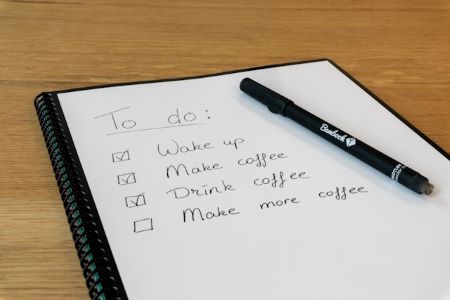“I can’t seem to get out of this rut.”
“My mood has been low for a while now and it doesn’t seem to lift.”
“I feel unmotivated and don’t get around to doing anything.”
Does this sound familiar?

These are remarks I often hear in the practice room when working with people experiencing dysthymia, a mild, chronic form of depression, or anhedonia, which is the loss of pleasure. There are many reasons why someone might feel this way, and exploring them is worthwhile. We aim to understand and create awareness of underlying patterns and help people change unhelpful thoughts or behaviours so they can move forward. This allows them to feel lighter and more content. That’s what we do in therapy. There is rarely a quick fix, and it can take time to reset and develop more helpful thought patterns and behaviours. In the meantime, little tricks or shortcuts can help cope better. While we still need to address the root of the issue, that doesn’t mean we can’t start moving forward right away.
One way to break the general apathy and listlessness that many people feel in a relatively short period of time is by creating the habit of setting and completing five critical tasks each day. It takes time to form a new habit, so it’s important to stick with this approach for at least a month. After this period, you can evaluate how you feel – lighter and more motivated – and reflect on the many things you have accomplished in that relatively short time.
A critical task can be any task you set for yourself that enhances your quality of life. These tasks can be as simple as going for a walk, cooking a healthy meal, tidying up a room, or calling an old friend.
Get yourself a notebook and write down five simple tasks you want to accomplish each day. Although using pen and paper may seem old-fashioned, handwriting has been proven to boost creativity and generate up to four times more ideas.
Additionally, you are three times less likely to be distracted when writing on paper compared to using a screen. Plus, you have a better retention rate when writing things down. Physically crossing off tasks as you complete them provides a sense of achievement and a little dopamine boost – one of the “feel-good” hormones that can make you feel lighter and happier.
It’s important that the tasks you set for yourself are achievable and don’t consume too much time or energy, allowing you to complete all five by the end of the day. Be kind to yourself and set realistic goals initially. Once you’ve made a start and feel you are on a roll, you can challenge yourself a bit more. Additionally, avoid repeating the same tasks too often and ensure that your daily routine doesn’t dominate the list. Try to be a little creative and adventurous. For example, if one of your tasks is cooking a healthy meal, try making a dish you’ve never tried before. If you’re going for a walk, explore a new route or invite a friend to join you. These variations can increase your sense of accomplishment and contentment.

Creating the list in the morning is a form of visualisation. You are literally visualising your day, what you will achieve, and how content you might feel at the end of the day after crossing off all five critical tasks. This provides you with purpose and direction and keeps you from getting lost in unhelpful thoughts or worries. You might also surprise yourself and complete your tasks faster than you imagined, which is a success in itself and provides additional dopamine for enjoyment. When you review your list at night, you can see what you have accomplished, which can bring a smile. Even if there were difficulties during the day and your overall situation hasn’t changed, you still accomplished something.
What if you don’t complete the list and have a task left over at the end of the day?
Don’t be hard on yourself. Focus on your achievements rather than what you didn’t complete. Move the unaccomplished task to the next day and carry on, one day at a time.

This little trick not only benefits your mental health in the short term, but it may also help you tackle overdue chores or administrative tasks, as you will generally be more productive. This increased productivity can positively affect your relationships with your partner, children, relatives, and friends. As with most mental health interventions, small, positive, incremental changes have a ripple effect on your overall well-being and the people around you.
So give it a try and start taking steps to regain control of your feelings & achieve greater contentment.




